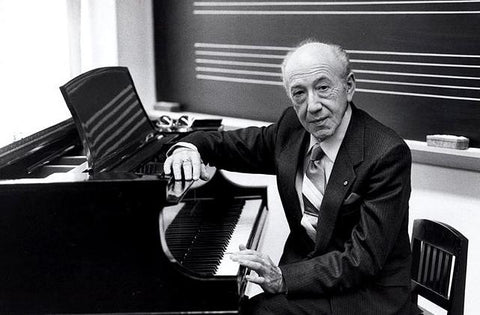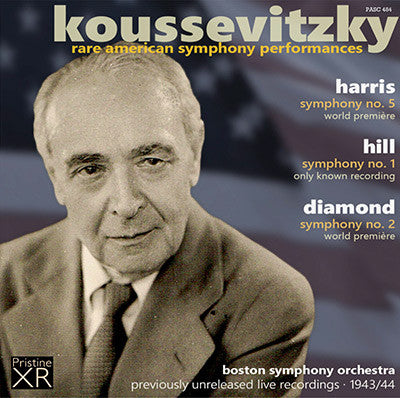Diamond

David Leo Diamond (July 9, 1915 – June 13, 2005) was an American composer of classical music.
He was born in Rochester, New York, and studied at the Cleveland Institute of Music and the Eastman School of Music under Bernard Rogers, also receiving lessons from Roger Sessions[1] in New York City and Nadia Boulanger in Paris. He won a number of awards including three Guggenheim Fellowships, and is considered one of the preeminent American composers of his generation. Many of his works are tonal or modestly modal. His early compositions are typically triadic, often with widely spaced harmonies, giving them a distinctly American tone, but some of his works are consciously French in style. His later style became more chromatic.
Diamond's most popular piece is Rounds (1944) for string orchestra. Among his other works are eleven symphonies (the last in 1993), concertos including three for violin, eleven string quartets, music for wind ensemble, other chamber music, piano pieces and vocal music.
He composed the musical theme heard on the CBS Radio Network broadcast Hear It Now (1950–51) and its TV successor, See It Now (1951–58).
Diamond was named honorary composer-in-residence of the Seattle Symphony. He was a longtime member of the Juilliard School faculty, his notable students including Alan Belkin Robert Black, Kenneth Fuchs, Albert Glinsky, Daron Hagen, Adolphus Hailstork, Anthony Iannaccone, Philip Lasser, Lowell Liebermann, Alasdair MacLean, Charles Strouse, Francis Thorne, Kendall Durelle Briggs and Eric Whitacre. Diamond is also credited with advising Glenn Gould on his mid-career work, most notably his String Quartet, Op. 1.
In 1995, he was awarded the National Medal of Arts.
Diamond was openly gay long before it was socially acceptable, and believed his career was slowed by homophobia and antisemitism. According to an obituary in The Guardian however, "He enjoyed enormous success in the 1940s and early '50s with champions that included Koussevitzky, Bernstein, Munch, Ormandy and Mitropoulos but, in the 1960s and '70s, the serial and modernist schools pushed him into the shadows." The New York Times similarly referred to Diamond as "a major American composer whose early brilliance in the 1940's was eclipsed by the dominance of atonal music... He was part of what some considered a forgotten generation of great American symphonists, including Howard Hanson, Roy Harris, William Schuman, Walter Piston and Peter Mennin." The New York Times also suggested that Diamond's career troubles may have also been caused by his "difficult personality... he said in the 1990 interview, 'I was a highly emotional young man, very honest in my behavior, and I would say things in public that would cause a scene between me and, for instance, a conductor.'"
In 2005, Diamond died at his home in Brighton, Monroe County, New York, from heart failure.

Diamond
David Leo Diamond (July 9, 1915 – June 13, 2005) was an American composer of classical music.
He was born in Rochester, New York, and studied at the Cleveland Institute of Music and the Eastman School of Music under Bernard Rogers, also receiving lessons from Roger Sessions[1] in New York City and Nadia Boulanger in Paris. He won a number of awards including three Guggenheim Fellowships, and is considered one of the preeminent Ameri...
EDWARD BURLINGAME HILL Symphony No. 1
DAVID DIAMOND Symphony No. 2
Live recordings, 1943 & 1944
Total duration: 77:49
Boston Symphony Orchestra

